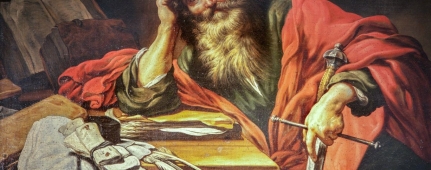1 Corinthians 3:19—How could Paul consider the words of Eliphaz inspired when God rebuked Eliphaz for saying them to Job?
Problem: In 1 Corinthians 3:19 the Apostle Paul quotes from the Book of Job a statement made by one of Job’s friends Eliphaz which says, “For it is written, `He catches the wise in their own craftiness’ ” (cf. Job 5:13). Yet later in Job, God says to Eliphaz, “My wrath is aroused against you and your two friends, for you have not spoken of Me what is right, as My servant Job has” (Job 42:7). If what Eliphaz spoke was not right, then can his words be considered inspired?
Solution: First, God did not say that everything uttered by Eliphaz was false, but only his accusations that God was punishing Job because of his sin. On this point Eliphaz and his friends did not speak what was right of God. For God considered Job perfect, a man who did good and turned away from evil (Job 2:3). Satan thought that, given the right circumstances, Job would curse God (2:4–5). Therefore, the things that happened to Job were allowed by God to show that Job would not curse Him. They did not happen because he had sinned. In light of this, Job’s friends were wrong. But this does not mean that they never said anything that was true in their speeches. For example, Eliphaz is certainly correct in asserting that “He [God] gives rain on the earth, and sends waters on the fields” (Job 5:10). Likewise, he is right in affirming that God “catches the wise in their own craftiness” (Job 5:13).
Second, Paul uses the phrase “It is written” to introduce the quoted material. This is a standard practice in the NT to show that a particular passage is authoritative (cf. Matt. 4:4, 7, 10). Thus the inspired NT places its approval on this statement as true. Indeed, the fact that God takes up this same basic truth in His declaration to Job (37:24) gives divine approval to it and makes it appropriate for Paul to quote it as inspired.
See All Problems
This excerpt is from When Critics Ask: A Popular Handbook on Bible Difficulties (Wheaton, Ill.: Victor Books, 1992). © 2014 Norman Geisler and Thomas Howe. All rights reserved. Used by permission. Click here to purchase this book.














